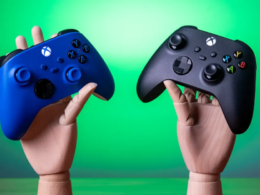The Rise of "Apple Man" and "Android Man": A Modern Cultural Phenomenon
Summary:
- The terms "Apple Man" and "Android Man" have emerged as new cultural identities, leading to social commentary on consumer choices.
- This phenomenon reflects deeper societal anxieties about identity, status, and belonging in today’s world.
- The absurd classification system is not merely for laughs; it reveals much about the relationship between consumerism and personal identity.
In a curious turn of events, the mobile phone industry has birthed a cultural debate that has taken social media by storm. The terms “Apple Man” and “Android Man” have evolved far beyond mere brand loyalty, becoming symbols of social commentary reflecting societal norms and biases. This trend not only illustrates consumer preferences but also highlights deeper issues related to identity and status.
As these hashtags gain traction, a fascinating classification emerges. Apple Men are perceived as privileged users who own high-end products, live in aesthetically pleasing spaces, and drive luxury cars like Teslas. Conversely, Android Men are playfully mocked for their supposedly less desirable lifestyles, characterized by inadequate housing, fuel-inefficient vehicles, and even “lesser” pets. This stark dichotomy raises important questions about how we define status and value in the modern consumer society.
Cultural Classifications and Social Commentary
What truly complicates this discussion is the academic background associated with these identities. According to the growing narrative, holding a bachelor’s degree or higher qualifies one as an "Apple degree," while those with degrees from less prestigious institutions are mockingly labeled as possessing "Android degrees." This facet of the classification system has ignited outrage among many, challenging the notion that material possessions or brand choices correlate directly with intellectual capability or worth.
This trending absurdity highlights a pressing anxiety prevalent in contemporary consumer culture: the need for individuals to carve out identities in a world fraught with uncertainty. As individuals navigate a landscape filled with rapid technological advancements and shifting societal norms, they increasingly rely on consumer brands as markers of personal identity.
Identity Crisis in Consumerism
As analysts point out, the overarching popularity of the "Apple vs. Android" discussion is not just about preferences—it’s emblematic of a broader identity crisis. In selecting a smartphone, many consumers unconsciously seek validation and belonging within a specific cultural framework. In an age where choices often define us, alignment with a particular brand can fulfill a desire for significance in an otherwise chaotic world.
Furthermore, the nature of online communication plays a significant role in this narrative. The rapid spread of memes and humorous content allows individuals to express sentiments that might otherwise remain unvoiced. Yet, in this environment of lightheartedness, some have stripped the intention of these classifications down to serious social commentary, asserting identities that provoke discussion about family and relational dynamics.
The Dark Side of Internet Culture
The phenomenon also raises concerns about the potential for darker implications. In many cases, these social tags serve as vehicles for releasing pent-up frustrations and societal criticisms. Memes might provide temporary relief but can also amplify social divides, fostering environments of ridicule based on arbitrary classifications.
This trend ultimately reflects a deeper discomfort lurking beneath surface-level humor. Individuals from all walks of life wrestle with feelings of inadequacy and the urge to fit neatly into defined cultural boxes. The "Apple" versus "Android" debate serves as a mirror, reflecting both the absurdities and aspirations of modern society.
Conclusion: Reflections on Identity and Belonging
As we observe the evolution of the "Apple Man" and "Android Man" narrative, it becomes evident that these classifications hold significant weight. They are not simply amusing social media fodder; rather, they reveal the complexities of identity in an age dominated by consumerism and technology.
In a world increasingly reliant on brand allegiance to forge a sense of self, the dialogues surrounding these classifications serve as a reminder of our shared humanity. We must navigate these identities with an awareness of the societal pressures that shape our choices, ensuring they do not inadvertently reinforce stereotypes or perpetuate division.
Whether one identifies as an “Apple Man” or “Android Man,” it’s crucial to engage in open dialogue and foster understanding to move beyond superficial divides and truly appreciate the diverse mosaic that enriches our contemporary landscape.










